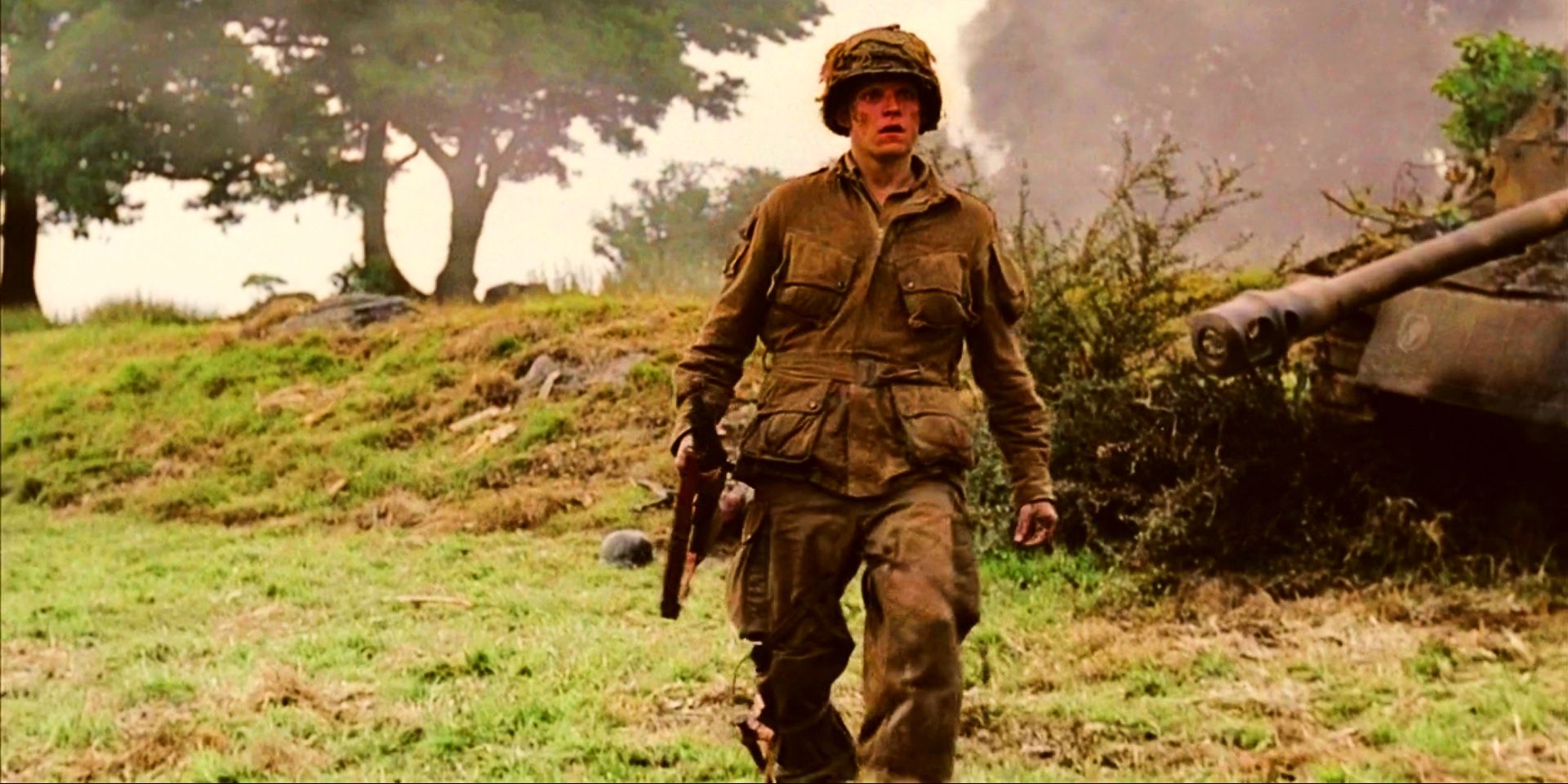
The Enduring Legacy of Band of Brothers

Exploring the lasting impact of the acclaimed WWII miniseries and its relevance in today's entertainment landscape.
Band of Brothers: A Timeless Masterpiece
In the realm of WWII TV shows, Band of Brothers has long been revered as the pinnacle of storytelling, character portrayal, and thematic depth. Its enduring legacy is a testament to the exceptional quality of the miniseries, which continues to captivate audiences more than two decades after its initial release. The show's remarkable writing, compelling characters, and unparalleled portrayal of the harsh realities of war have solidified its position as a timeless masterpiece in the annals of television history.
Neal McDonough as First Lieutenant Lynn "Buck" Compton prepares to hurl a grenade in Band of Brothers.
The unique aesthetic and cinematography of Band of Brothers, characterized by its juxtaposition of harsh and soft visuals, have contributed to its lasting impact. The sound design effectively immerses viewers in the visceral experiences of the protagonists, offering a more nuanced depiction of the ugliness of war that sets it apart from conventional war narratives. Band of Brothers remains unparalleled in its ability to evoke empathy and understanding for the soldiers who endured the hardships of combat, making it a standout in the WWII TV show genre.
Ron Livingston and Damian Lewis as Captain Lewis Nixon and Major Richard "Dick" Winters stand side by side in Band of Brothers.
The Rise of Original WWII Content
The success of recent WWII shows, such as Masters of the Air, has underscored the demand for original storytelling within the historical period. Masters of the Air, while drawing comparisons to Band of Brothers, has carved its own path by delivering a compelling narrative and innovative filmmaking techniques. The performance of its lead, Austin Butler, and the authentic portrayal of wartime experiences have resonated with audiences, signaling a shift towards embracing original content that explores the complexities of WWII without relying on remakes or reboots.
Austin Butler as Gale Cleven in Masters of the Air Episode 3.
The emergence of shows like Masters of the Air and The Pacific demonstrates that there is a thriving market for filmmakers to create fresh, engrossing narratives set against the backdrop of WWII. This trend towards original content not only provides audiences with new perspectives on historical events but also challenges the notion that remakes are the only way to capture the essence of pivotal moments in history.
Sawyer Spielberg in the cockpit in Masters of the Air
Preserving the Legacy of Band of Brothers
While the idea of a Band of Brothers remake has garnered attention, the unmatched quality of the original miniseries poses a formidable challenge to any potential reboot. Band of Brothers' exceptional writing and acting have set a standard that is difficult to surpass, making it a daunting task for any new production to replicate its impact. The cast of Band of Brothers, comprised of esteemed actors, remains a defining element that distinguishes the series from its contemporaries, showcasing a level of authenticity and immersion that modern productions strive to achieve.
Ron Livingston as Captain Lewis Nixon in Band of Brothers.
Furthermore, the advancements in filmmaking technology have not eclipsed the timeless scope and quality of Band of Brothers. Despite the allure of a remake, the enduring relevance of the original series and the acclaim it continues to receive underscore the importance of preserving its legacy. The industry's focus on creating original content, as exemplified by the success of Masters of the Air, reinforces the notion that Band of Brothers' unparalleled status sets it apart as a benchmark for WWII storytelling, making a remake unnecessary in the current entertainment landscape.
Craig Heaney as Private Roy W. Cobb in a scene from Band of Brothers.



















